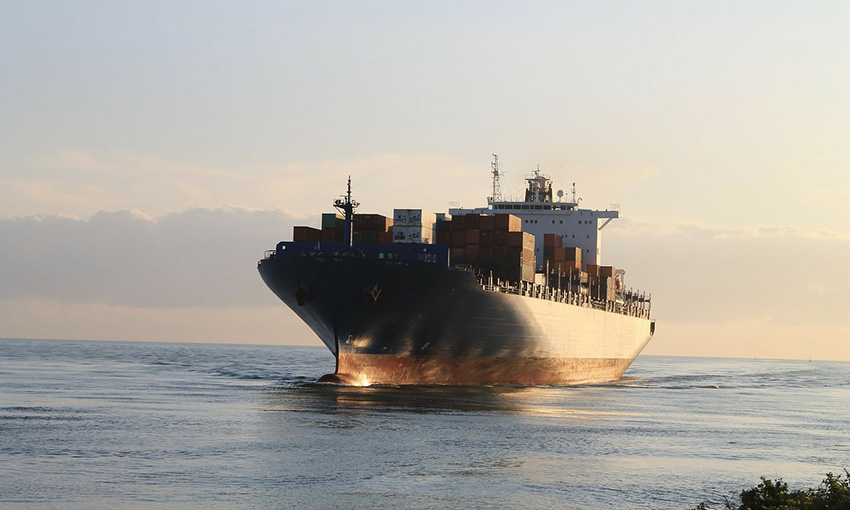THE UNITED Nations Conference on Trade and Development (UNCTAD) has released its findings and recommendations in the Review of maritime Transport 2024 report.
Areas of significance identified in the annual review included strained global supply chains from high freight rates, the Suez and Panama Canal disruptions, and fraudulent ship registrations.
The review outlined recommended actions to be adopted to address the issues outlined, including further investments in green and low carbon shipping, and increased port efficiency, amongst others.
Strained global supply chains
Global shipping costs surged in the first half of 2024, driven by unprecedented disruptions in major maritime routes and rising operational costs, says UNCTAD.
Freight rates skyrocketed in 2024 due to factors such as rerouted vessels, port congestion and higher operational costs.
By mid-2024, UNCTAD says the Shanghai Containerized Freight Index had more than doubled compared to late 2023.
According to the latest available data, as of 18 October 2024, the SCFI was down 45% from its 2024 high and 60% below its record level during COVID-19.
However, it remained 115% above the pre-pandemic average and more than double the 2023 average.
UNCTAD is calling for urgent, coordinated action to reduce volatility in freight markets, mitigate impacts and support vulnerable economies.
This includes monitoring freight market trends, strengthening international cooperation to reduce chokepoint disruptions, investing in port and infrastructure upgrades, diversifying shipping routes and promoting regional trade initiatives, and supporting low-carbon shipping and port solutions.
Suez and Panama Canal, global trade disruptions
UNCTAD says global trade is facing significant disruptions as two of the world’s most vital maritime chokepoints, the Suez Canal and the Panama Canal, experience severe challenges driven by geopolitical tensions and climate-related risks.
In addition to straining global supply chains and undermining economic growth, these disruptions are driving up costs, reshaping trade patterns, upending the flow of energy and food supplies, and threatening to exacerbate food security risks, especially in vulnerable economies.
A direct knock-on effect from the canal disruptions, longer routes have led to increased port congestion, fuel consumption, crew wages, insurance premiums and piracy risks, all while raising overall costs and greenhouse gas emissions.
Global ton-miles rose by 4.2% in 2023, further straining supply chains. By mid-2024, rerouting away from the Red Sea and Panama Canal increased global vessel demand by 3% and container ship demand by 12%.
UNCTAD is calling for swift and coordinated action to safeguard global trade and mitigate the effects of these chokepoint vulnerabilities.
The organisation recommended solutions such as, strengthened international cooperation and enhancement of monitoring systems, diversification of shipping routes and support regional trade initiatives to reduce dependency on long distance routes, and urgent investment in resilient infrastructure at key chokepoints.
The organisation said the challenges presented by the Suez and Panama canals highlight the fragility of global supply chains to disruptions.
Maritime chokepoints under pressure
Review of Maritime Transport 2024 mentioned that, although global maritime trade grew by 2.4% in 2023 to over 11 million tonnes, the future remains uncertain, as key maritime routes face vulnerabilities.
Cargo rerouting around the Cape of Good Hope (off the southern tip of Africa) has surged, according to UNCTAD, with ship capacity arrivals increasing by 89%.
Although this helps maintain the flow of goods, it adds significantly to costs, delays and carbon emissions, the organisation said.
The report further highlighted the need for the maritime industry to build resilience against the growing impacts of climate change and other disruptions, as extreme weather events disrupt port and shipping operations more frequently.
UNCTAD further addressed the rise in fraudulent ship registrations, which it said undermines safety, security, pollution control, and seafarer welfare.
This is compounded by a growing “dark fleet” of ships that operates under the radar, bypassing international regulations.
Review of Maritime Transport 2024 urges for coordinated efforts to navigate and adapt to the complex new shipping environment, calling to address disruptions at maritime chokepoints, further investment in low carbon and green shipping, and combating fraudulent ship registration, amongst other recommendations.

